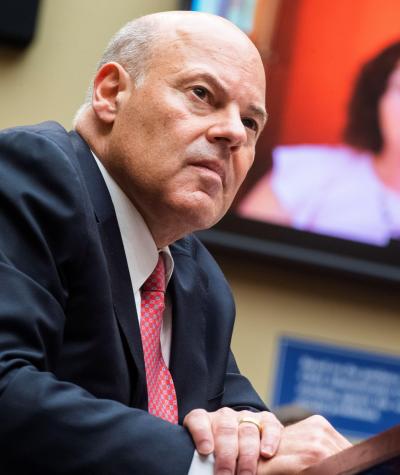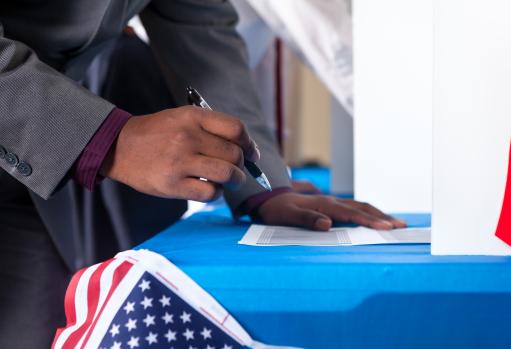Louis DeJoy seemed to have few qualifications for the position of U.S. Postmaster General besides being a major political donor. But evidence indicates that at least some of the donations that fueled his political rise over the years were illegal.
Five employees of DeJoy’s former company, New Breed Logistics, told the Washington Post that DeJoy or his aides urged staff to attend campaign fundraisers at his mansion and then reimbursed them for their political contributions through bonuses.
Campaign finance records show a pattern of New Breed Logistics employees donating to the same candidate or committee, on the same day, and often in the same amount. For example, on Oct. 8, 2014, 20 New Breed Logistics officials together gave a total of $37,600 to Thom Tillis’ campaign for U.S. senate.
DeJoy’s now-retired director of human resources told the Post that “Louis was a national fundraiser for the Republican Party. He asked employees for money. We gave him the money, and then he reciprocated by giving us big bonuses.”
By executing this reimbursement scheme, DeJoy appears to have violated federal campaign finance law’s ban on straw donations and corporate contributions.
Straw Donations Are Illegal
DeJoy is legally permitted to give to candidates—as long as he does so in his own name, using his own money, and within legal contribution limits. But if he also reimbursed others for their political giving, he unlawfully kept the true donor’s name off of campaign finance reports and likely exceeded contribution limits.
Transparency requirements and contribution limits are cornerstones of campaign finance law. All major donors must be disclosed on a candidate’s Federal Election Commission (FEC) report; that transparency allows voters to assess the sources of a candidate’s support and monitor whether a politician later takes action to benefit a donor’s interests.
And contributions to candidates are limited in order to prevent corruption. (In the 2020 cycle, DeJoy could give up to $2,800 per election, per candidate; in the 2014 cycle, the limit was $2,600.)
So-called “straw donations”—where a donor routes campaign contributions through another person—are prohibited because they are a means of evading these transparency requirements and contribution limits.
The FEC has made clear that the straw donor ban is violated by the “augmentation of compensation paid to an employee, in any manner, where such augmentation is done to effect a contribution in the employee's name to Federal candidates or political committees.”
Violations of the straw donor ban are subject to the most serious punishments of any campaign finance crimes. Many people have gone to jail for engaging in straw donor schemes.
Corporate Contributions Are Illegal
The means by which DeJoy allegedly carried out the straw donor scheme implicates another violation of federal campaign finance law: the corporate contribution ban.
DeJoy did not use his own money to reimburse employees for their political contributions; instead, he used New Breed Logistics resources to pay the employee bonuses. So New Breed Logistics was the true source of the contributions made in the name of company employees—and that’s illegal because corporations are banned from making contributions to candidates.
Will DeJoy Be Prosecuted?
The alleged corporate straw donor reimbursement scheme was carried out over several years but appears to have petered out approximately six years ago after the 2014 election cycle.
That could be a challenge for prosecutors since federal campaign finance law has a five-year statute of limitations. However, law enforcement might argue that DeJoy fraudulently concealed evidence of the illegal straw donations and that the statute of limitations should not begin running until 2020 when evidence of the illegality came to light.
DeJoy was already under fire for cost-cutting measures at the U.S. Postal Service (USPS) that slowed mail delivery and threatened the integrity of mail-in voting. His tenure has also been marked by ethical concerns, given that he owns millions of dollars of stock in some of USPS’s contractors and competitors.
DeJoy has been diminishing public trust in one of the country’s most vital institutions and undermining faith in the efficacy of mail-in voting.
Given that DeJoy was first considered for Postmaster General because of his status as a political fundraiser, it should perhaps be unsurprising if he gained that status by violating some of the laws that protect the integrity of our democracy.

